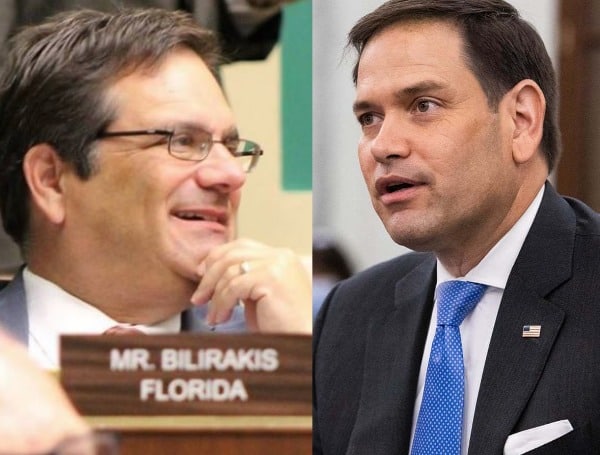Congressman Gus Bilirakis and Senator Marco Rubio (R-FL) reintroduced the State Accountability, Flexibility, and Equity (SAFE) for Hospitals Act, which would overhaul the Medicaid Disproportionate Share Hospital (DSH) program to create equity for all states.
The bill would update a metric used to determine how much each state is allotted, which has not been reformed since the early 1990s. It would also resolve a longstanding disparity in Medicaid DSH allocations across the nation, including Florida, and prioritize funding for hospitals that provide the most care to Medicaid and low-income patients.
Over the course of 10-15 years, Florida hospitals could gain up to $600 million in annual DSH funding as a result of this bill.
“I am proud to reintroduce the House companion to the SAFE Hospitals Act because it will ensure that our safety net hospitals in Florida actually receive their fair share of federal healthcare funding,” Bilirakis said. “Our bill updates the current antiquated formula from the early 90s to reflect the true needs of each state. The bottom line is that this bill will enable states like Florida to obtain the funding needed to better serve our most vulnerable citizens.”
“For far too long, Florida has not received its fair share of funding for hospitals that serve the most vulnerable patients,” Rubio said. “The current metric used to determine funding is outdated and unfair to hospitals in Florida and across the country. I’m proud to introduce this proposal to reform Medicaid DSH, and it is my hope that this bill will become a framework for future reform.”
“Florida hospitals and health systems currently lose hundreds of millions of dollars in funding per year due to the outdated formula the federal government uses to distribute some of its funding under the Federal Medicaid Disproportionate Share program,” said Mary C. Mayhew, President and CEO of the Florida Hospital Association. “On behalf of the Florida Hospital Association’s more than 200 hospitals and health systems.
“The Safety Net hospitals are optimistic that Florida’s entire Congressional delegation will back the SAFE Hospitals Act to finally fix this problem so Florida gets our fair share. Florida’s Safety Net hospitals have long expressed frustration that another state that chose not to expand Medicaid receives over 475 percent more funding for uninsured patient care than Florida. And that Connecticut receives the same DSH allotment as Florida but has less than one-fifth the population and, in 2019, served only 0.8 percent the U.S. population at or below 100 percent of the federal poverty level, compared to Florida’s 5.9 percent. I am hopeful that Congress will pass this legislation. It is a simple matter of fairness and should have bipartisan support,” Safety Net Hospital Alliance of Florida President Lindy Kennedy said.
The SAFE Hospitals Act would:
- Gradually change the DSH allocation formula so states’ allocations are based on the number of low-income earners living in the state, as a percentage of the total U.S. population earning less than 100 percent of the Federal Poverty Level (FPL).
- Prioritize DSH funding to hospitals providing the most care to vulnerable patients, while providing states with the necessary flexibility to address the unique needs of hospitals in each state.
- Expand the definition of uncompensated care to include costs incurred by hospitals to provide certain outpatient physician and clinical services, which is a change recommended by MACPAC.
- Allow states to reserve some of their DSH funding allocations to be used in future years in order to give hospitals more certainty or consistency in the amount of DSH funding they can expect when planning for the future.
Support journalism by clicking here to our gofundme or sign up for our free newsletter by clicking here
Android Users, Click Here To Download The Free Press App And Never Miss A Story. It’s Free And Coming To Apple Users Soon.

